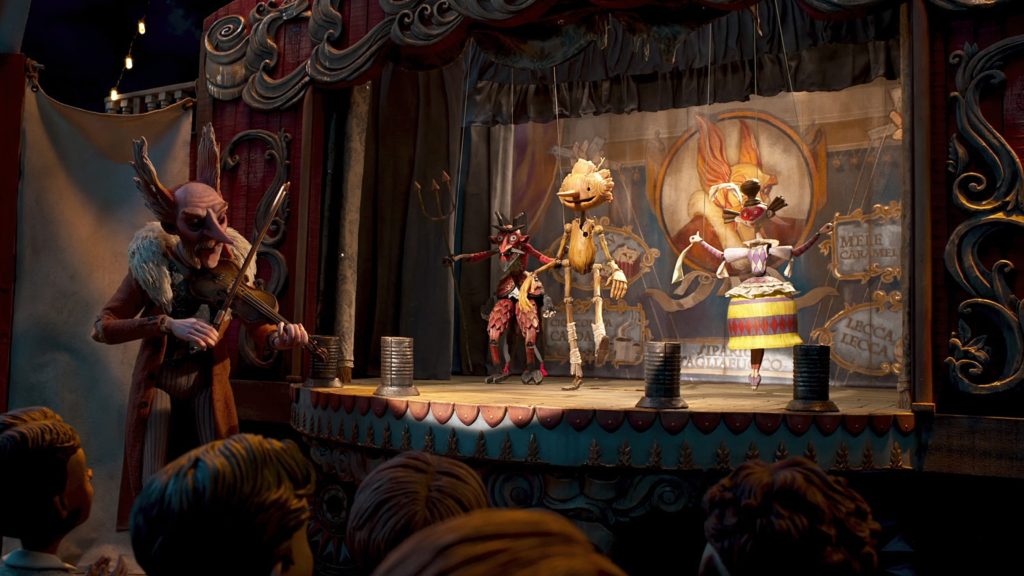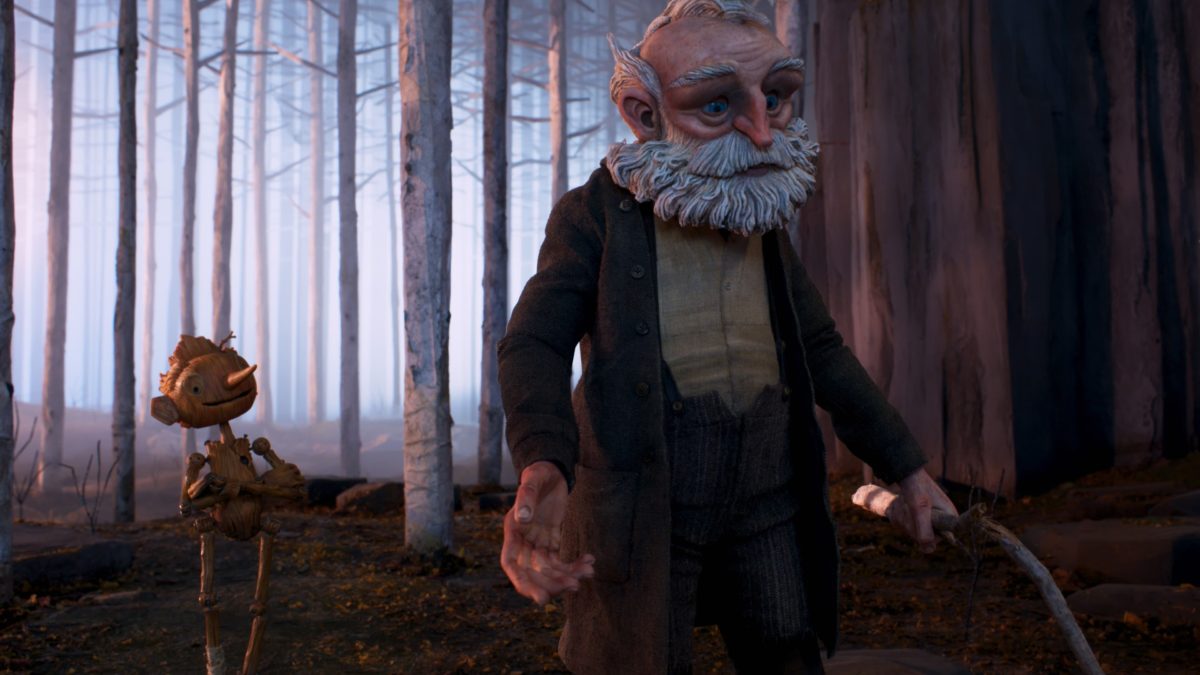Guiellermo Del Toro’s Pinocchio does a bunch of little- to medium-sized things wrong, but none of them end up mattering very much because it is such a fundamentally good movie. The animation is terrific, physical and hefty in ways that stop-motion ought be. The tone is an absolutely perfect blend of sentimental and creepy. The medium and the content are in total harmony — the rigidity of the animation and the uncanny nature of this Pinocchio are a perfect fit. It is one of the better movies of the year, and certainly one of the best pieces of animation of 2022. (It was the best of Pinocchios, it was the worst of Pinocchios…)
This version of the classic wooden-puppet-comes-to-life story opens with tragedy: Geppetto’s son Carlo is killed during a bombing of the Italian countryside. In his grief, Geppetto carves a wooden puppet who is imbued with life by a blue-eyed angel.
You probably know what happens from here, but del Toro introduces a few fun twists. The first is the reaction of the townspeople — if you ever wondered why so many people in these adaptations accepted a living doll without question, seeing it perhaps as a whimsical treat to brighten their day, then you’ll get a big kick out of the what the villagers have to say Pinocchio. Even better is the punchline about what a government agent says when he sees the living doll.

Among the fresh ideas in this Pinocchio is the thematic focus on fascism. The story takes place Mussolini’s reign, and Pleasure Island is replaced by a youth soldier training camp. This is probably the biggest individual complaint I have with the film: The classic Pinocchio tale is so intrinsically tied to coming-of-age that adding an extra layer on top of that — i.e. an exploration of fascism dehumanizing its population, especially its most innocent — makes for a narrative cacophony.
More successful is the contrast of life and death. GDT’s Pinocchio actually confronts the question that inevitably comes up when discussing Toy Story: When material things come to life, what does it say about mortality and the soul? There’s a purgatorial afterlife gimmick used for both laughs and pathos. Even beyond that, there’s a sense of mourning to the story — Geppetto’s coping with his grief for his dead son drives his and Pinocchio’s character arcs.
To the movie’s credit, it knows that this story has been done before, and it skewers some of the tropes. My favorite recurring gag is when the Jiminy Cricket stand-in voiced by Ewan McGregor starts to burst into song only to be unceremoniously cut off in some way, usually via some sort of injury. (Incidentally, this was the only thing I liked about the cricket character, who doesn’t fit into the story’s tone at all.)

This adaptation is also a musical, and the fact that I waited until the seventh paragraph to mention that should probably tell you something. The score by Alexandre Desplat has a light, forgettable touch, with one major exception, the film’s signature number about the film’s two father-son relationships, “Ciao Papa.” It, too, has a light touch, but the sonic gentleness in contrast with its tearjerking placement in the story makes it a sledgehammer. I can’t think of too many other songs more worthy of the “Best Original Song” Oscar this year.
GDT’s Pinocchio doesn’t end with the jubilation of the Disney classic. It’s a more pensive take on what it means to be “real,” and it definitely generates the waterworks. I found the story touching in whole, so remarkably thought through and well-crafted that I was happy to forgive its flaws.
- Review Series: 2022: Year in Film
Is It Good?
Very Good (6/8)
Awards, Honors, & Rankings
- The B.A.D.S. (2022) - Best Song ("Ciao Papa") (Nominee)
- The B.A.D.S. (2022) - Best Streaming-Only Feature (Nominee)
- The B.A.D.S. (2022) - Best Animated Feature (Nominee)
- The B.A.D.S. (2022) - Best Voice Actor (David Bradley) (Nominee)
- Top 10 Movies of 2022 - Next Ten (#11-20)
Dan is the founder and head critic of The Goods. Follow Dan on Letterboxd. Join the Discord for updates and discussion.

